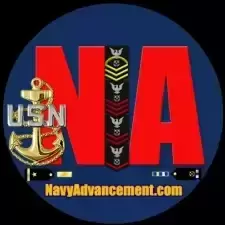Navy Advancement Results, Exam, Bibs Forum
The Navy advancement forum covers results, meritorious advancement, exam, study material and NAVADMINs related to advancement through E-6. E-1 and E-2 are encouraged to join.
409 topics in this forum
-
- 0 replies
- 3.3k views
-
- 0 replies
- 6.8k views
-
- 0 replies
- 2.7k views
-
- 0 replies
- 2.3k views
-
- 0 replies
- 4.4k views
-
- 0 replies
- 2.7k views
-
- 0 replies
- 2.1k views
-
- 0 replies
- 5.4k views
-
- 0 replies
- 3.5k views
-
- 1 reply
- 8.7k views
-
- 0 replies
- 1.8k views
-
- 0 replies
- 3.6k views
-
- 0 replies
- 3.1k views
-
- 0 replies
- 4.6k views
-
- 0 replies
- 5k views
-
- 0 replies
- 21.2k views
-
- 0 replies
- 2.1k views
-
- 0 replies
- 3k views
-
- 0 replies
- 3.5k views
-
- 1 reply
- 8.5k views
-
- 1 reply
- 6.4k views
-

- Guest
-
- 0 replies
- 6.7k views
-
- 0 replies
- 3.9k views
-
- 0 replies
- 6.8k views
-
- 0 replies
- 6.1k views
